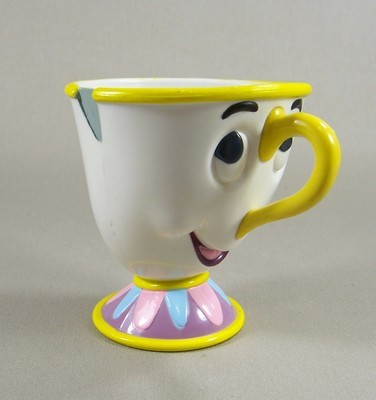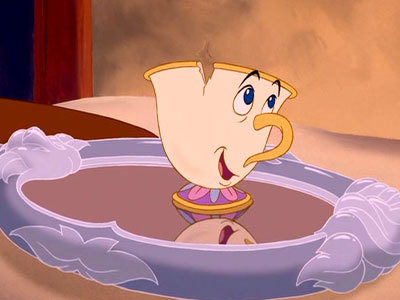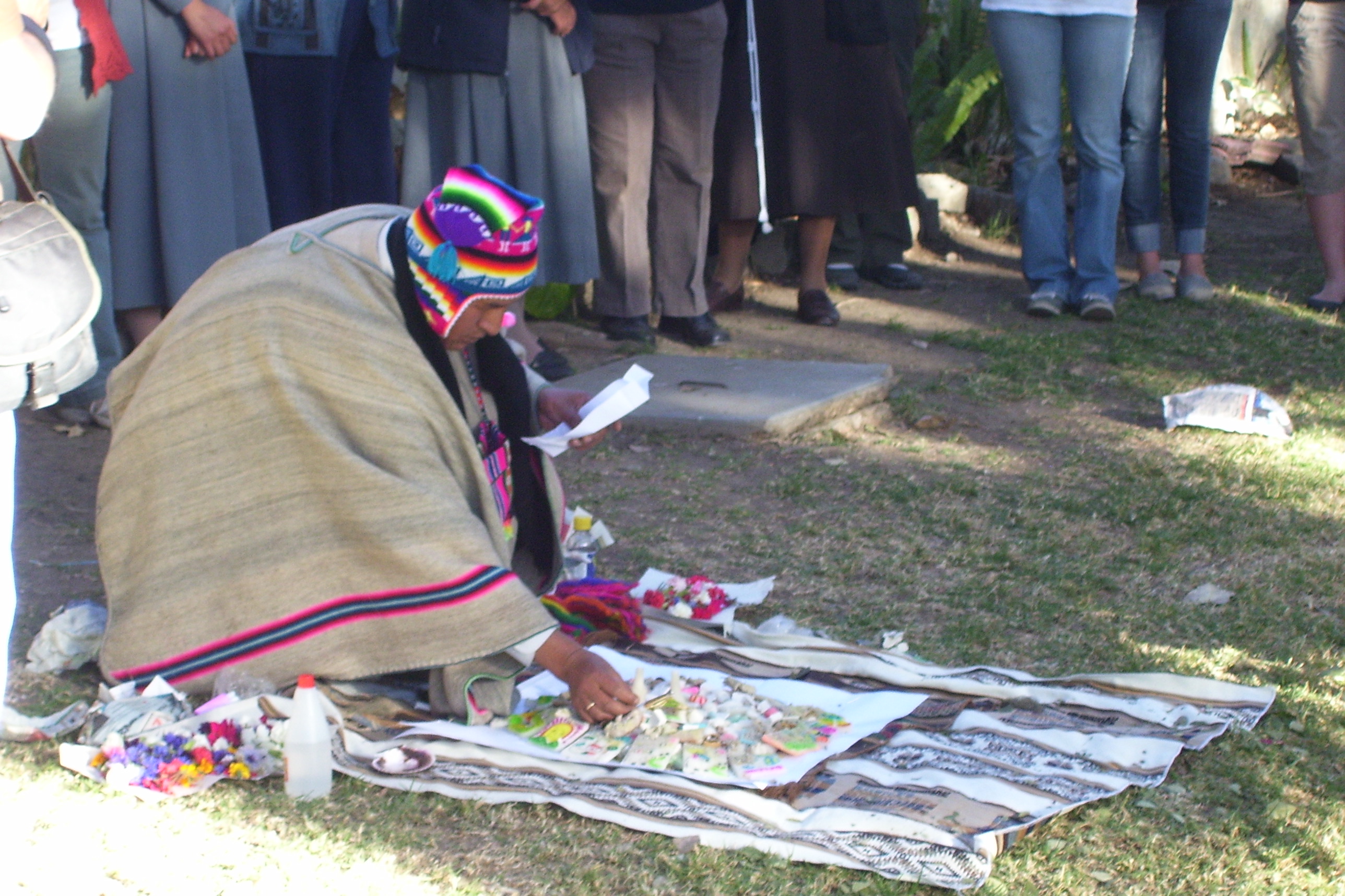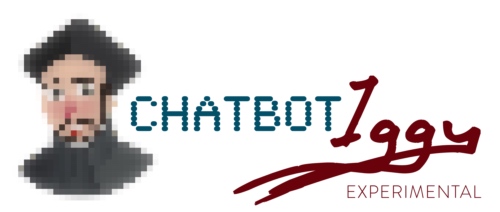 I was at Disneyland with my wife a few weeks ago and while we were walking through a shop I saw some items from Disney’s Beauty and the Beast. One of the items was Chip, the little boy teacup who was Mrs Pott’s son in the animated film. He, along with the other characters, were humans who lived and worked in the Beast’s castle. When a curse was put onto the castle they transformed into objects like clock, a candle, or a teapot. What is characteristic of Chip is that he is a teacup that has a chip taken out of one side. And it’s no surprise that Disney includes this characteristic detail in their Chip merchandise.
I was at Disneyland with my wife a few weeks ago and while we were walking through a shop I saw some items from Disney’s Beauty and the Beast. One of the items was Chip, the little boy teacup who was Mrs Pott’s son in the animated film. He, along with the other characters, were humans who lived and worked in the Beast’s castle. When a curse was put onto the castle they transformed into objects like clock, a candle, or a teapot. What is characteristic of Chip is that he is a teacup that has a chip taken out of one side. And it’s no surprise that Disney includes this characteristic detail in their Chip merchandise.
The chip in Chip is likely due to the fact that as a human boy he had a missing tooth (which appears as a chip when he becomes a teacup), but what struck me is how the chip represents imperfection. Most of us would get rid of a teacup or glass that has a chip in it, yet in Beauty and the Beast, the character Chip has value and exudes joy and love. The chip in his side is just part of who he is. It doesn’t make him useless as a teacup.
 If you’re like me, you struggle with your imperfections, things that you can’t always shake because they’re so much a part of your personality; they’re part of who you are. If you’re familiar with the Enneagram personality model you’ll know it’s based on our tendency toward a core sin that, while its energy can be used for good, typically becomes a compulsion. As an Eight on the Enneagram I have the drive to fight for injustice, a desire to give a voice to the voiceless, and to try to make things right. The tendency however is to become combative, domineering, and intense. This aspect of who I am is my own chip, my own imperfection. Over the years I’ve tried to “get rid of” this imperfection and wish my personality were different. The truth is, while the imperfection of the Eight (or any of the personality flaws discovered through the Enneagram) can be negative and unproductive, their energy can be directed toward creating good and positive change.
If you’re like me, you struggle with your imperfections, things that you can’t always shake because they’re so much a part of your personality; they’re part of who you are. If you’re familiar with the Enneagram personality model you’ll know it’s based on our tendency toward a core sin that, while its energy can be used for good, typically becomes a compulsion. As an Eight on the Enneagram I have the drive to fight for injustice, a desire to give a voice to the voiceless, and to try to make things right. The tendency however is to become combative, domineering, and intense. This aspect of who I am is my own chip, my own imperfection. Over the years I’ve tried to “get rid of” this imperfection and wish my personality were different. The truth is, while the imperfection of the Eight (or any of the personality flaws discovered through the Enneagram) can be negative and unproductive, their energy can be directed toward creating good and positive change.
Chip didn’t let his imperfection prevent him from being who he was: a teacup. In fact, it’s his chip that makes him unique. I especially discovered this truth in my relationship with my wife. She doesn’t only love me despite my imperfections; she loves me for them. My quirks make me who I am. She knows I’m constantly striving to use the chips I have for good. The extraordinary thing about our paradoxical God is that brokenness often becomes a source for good. Christ’s brokenness on the cross was used to save us from sin. Saint Paul’s years of persecuting was transformed into missionary service. Saint Ignatius’ shattered knee would move him to change his life.
The communion of saints is filled with Chips, unique women and men whose imperfections and experiences of brokenness would become sources of transformation and love. We can all learn a lesson from Beauty and the Beast’s little teacup. Whether our chips and nicks are part of our personality or our life experiences, we can’t get rid of them. They are part of who we are, and God is calling us to examine them, hold them up in prayer, and let them become sources of growth and love.
Related posts:
Listen to an audio version of this post…
Music by Kevin MacLeod









I believe that it is in our woundedness that we are able to draw others to Christ.
My chips? Impatience – you’d have thought that my age I would know better, and a short temper. Each day I pray that they may be taken away but as you say they are part of who I am. God knows me infinitely better than I know myself and I thank God that He accepts me as I am – trying hard to slow down to “Be slow to speak…
This reflection is both adorable and relatable–thanks.
What do you think about these articles on the enneagram?
http://www.catholic.com/quickquestions/has-the-church-said-anything-against-the-enneagram
https://www.ewtn.com/library/NEWAGE/ENNEAGRA.HTM
Thanks for posting those links. My concern is that they describe the Enneagram as “new age”. The Enneagram is a personality model that helps us name elements of who we are. It would be like calling the Myers-Briggs or the Catholic Spiritual Gifts Inventory new age. There’s nothing occult or supernatural about them — they’re simply a means that helps us name already real parts of who we are. I’ve been able to recognise both the healthy and unhealthy parts of me which affect my relationships. The “true self” the Enneagram aides in revealing is who God made us to be. And as I said, as Original Sin gives us the tendency to sin, sin becomes manifest in me in a particular way (challenging, domineering, etc.). It’s more the psychology of the spiritual life (and life in general). I would never call the Enneagram new age. Crystals are new age. Vortexes are new age. The Enneagram is simply a tool to help me examine my gifts and weaknesses; and it calls me toward being the person God desires me to be. Where’s the harm in that? Where’s the harm in self-examination and reflection?
Very nice, Andy! When I was on retreat once, I realized that to be whole in Christ, we must accept the whole Christ — Christ who feeds the hungry & Christ who is found in the hungry, Christ who heals the sick & Christ who is found in the sick we are called to visit. It helped me to realize we must give & receive. I think our chips are not so much flaws as places in our lives where we receive God’s grace in a special way, and I think knowing we need to receive is hard for those called to serve. (This relates in my head, but I am not sure I am communicating the connection very well.)
I would recommend: Don Richard Riso’s book – “Personality Types – Using the Enneagram for Self-Discovery” – Published by The Aquarian press.- A Thorsons Company – ISBN 0-8503-744-9